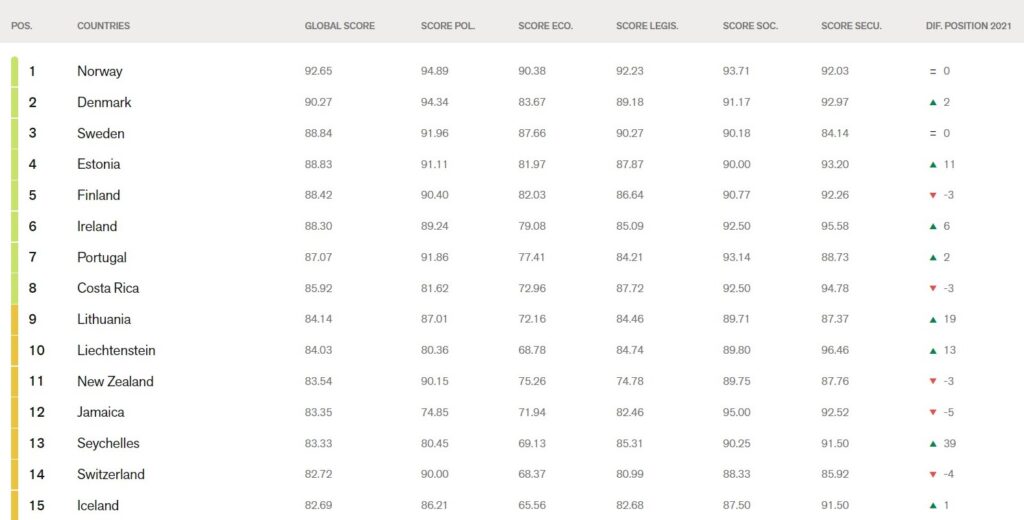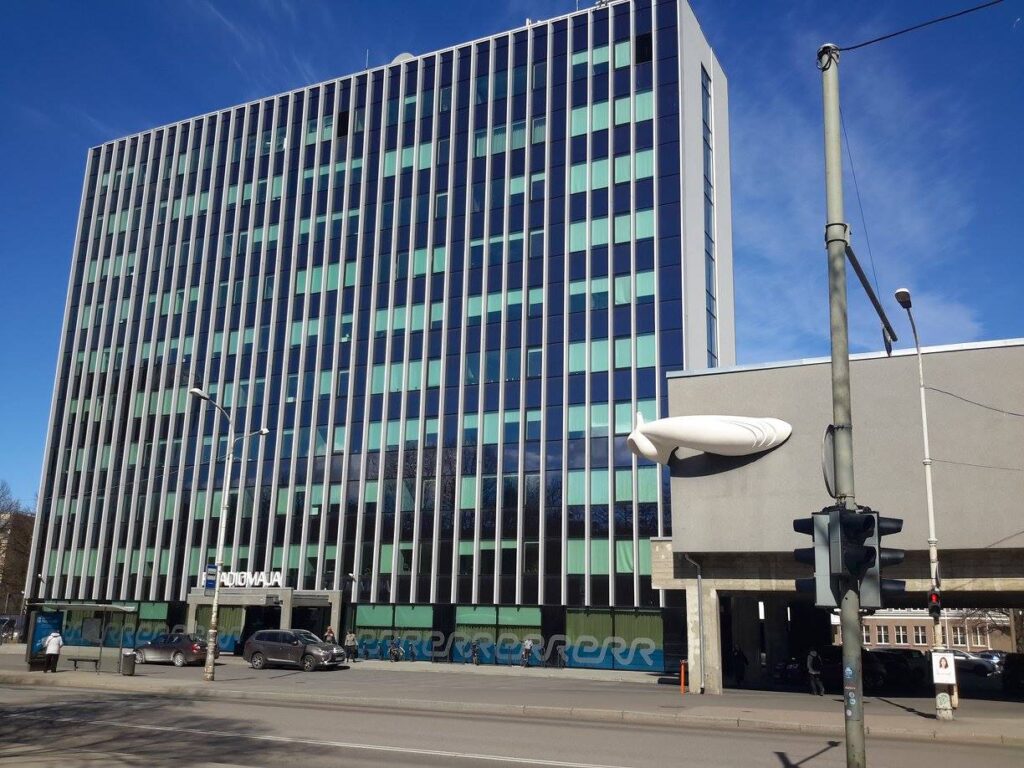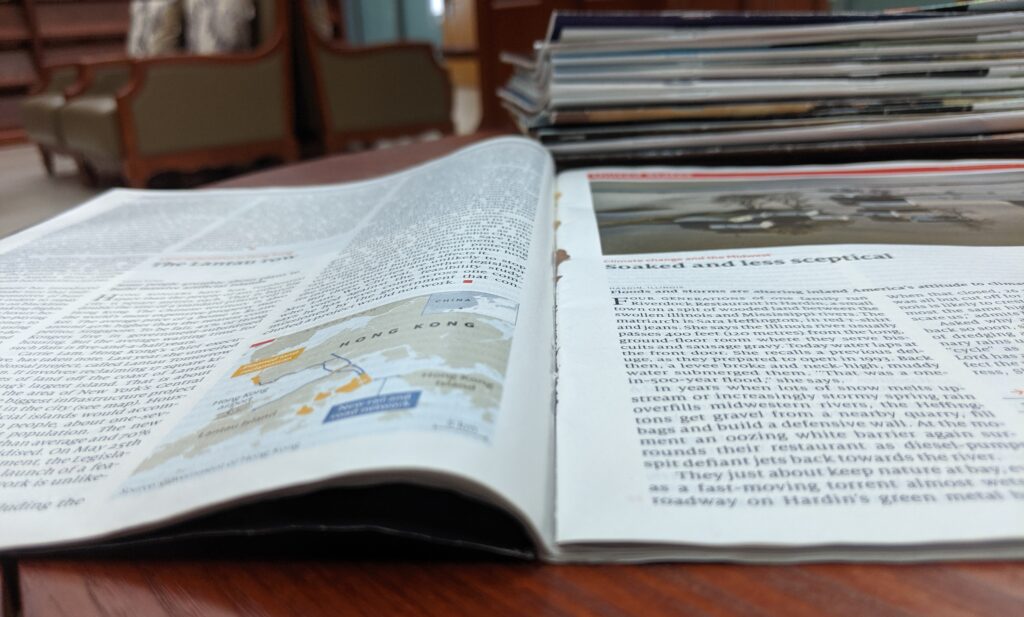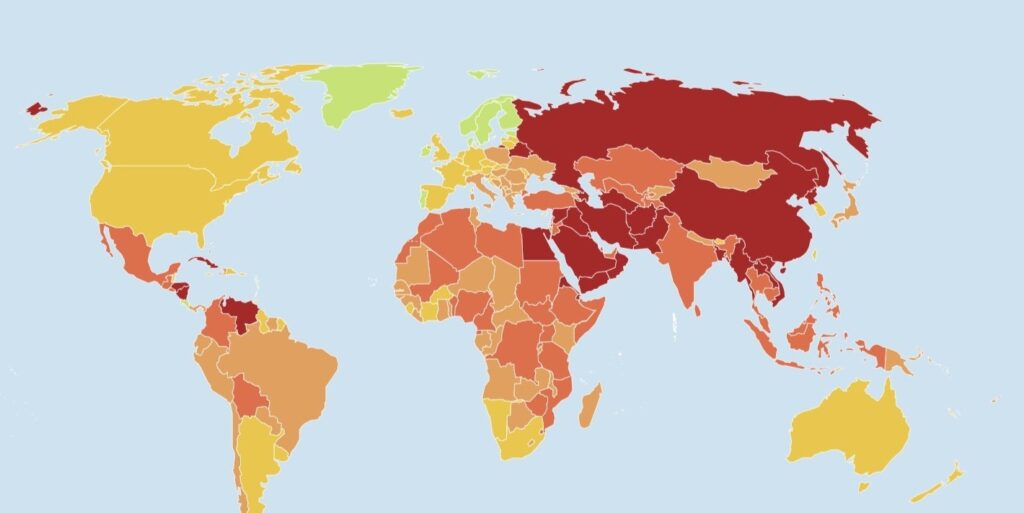Estonia ranks fourth in the 2022 World Press Freedom Index, compiled by Reporters Without Borders and assessing the state of journalism in 180 countries and territories – rising from last year’s 15th position.
The 2022 World Press Freedom Index is led by Norway, Denmark, Sweden, Estonia and Finland. It is for the first time that Estonia is ranked higher than its close northern neighbour, Finland, in the index.
Ireland, Portugal, Costa Rica, Lithuania and Liechtenstein close the top ten. Among the Estonia’s neighbours, Latvia is ranked 22nd and Russia 155th.

A risk of self-censorship
But despite the high press freedom position, Estonia’s media sphere is not problem-free, with self-censorship marked as one of the issues.
“Although press freedom is guaranteed on the legal and political levels, journalists face the risk of self-censorship due to anti-defamation legislation and cyber-bullying,” Reporters Without Borders, the initiator of the index, said in its report on Estonia.
The organisation noted that, although no long-term cultural or societal constraints have prevented journalists from doing their job [in Estonia], the “media were accused by a part of the population of complacency with the authorities and pharmaceutical companies during the Covid-19 pandemic. As a result, journalists suffered online and offline verbal attacks.”
While physical attacks against them are extremely rare, journalists have been exposed to a growing number of online threats by private individuals, the most severe cases being reported to the police and investigated. “The media houses have deployed measures to better protect journalists, but in the context of lacking systematic psychological assistance, cyberbullying may have a self-censorship effect on journalists.”
Media ownership can be considered oligopoly in Estonia
Reporters Without Borders also pointed out that media ownership in Estonia is so concentrated that it can be considered an “oligopoly”.
“The owners of the two major media groups (Postimees Group and Ekspress Group) also have stakes in other business sectors. Estonian private media are operating within a small market with limited access to funding, which constrains them to looking for new revenue sources such as organizing events. The budget of public broadcasting (ERR) is increasingly limited (0.14 % of GDP) and can be subjected to political influence.”

Commenting on the legal framework, the organisation said that “although constitutionally guaranteed, media freedom is constrained by legislation protecting against defamation and disclosure of private data. While the fear of defamation lawsuits may lead to self-censorship, the laws protecting private data have recently become a pretext of Estonian authorities to increasingly restrict media’s access to public information.”
According to the Reporters Without Borders assessment, Estonian journalists are able to hold local politicians accountable. “The political environment has been characterized by a relative neutrality towards journalism and few verbal attacks, which has contributed to journalists being able to hold politicians accountable without fear of persecution.”
Global information chaos
Reporters Without Borders said the 2022 edition of the World Press Freedom Index highlighted the “disastrous effects of news and information chaos – the effects of a globalised and unregulated online information space that encourages fake news and propaganda.”
“Within democratic societies, divisions are growing as a result of the spread of opinion media following the ‘Fox News model’ and the spread of disinformation circuits that are amplified by the way social media functions. At the international level, democracies are being weakened by the asymmetry between open societies and despotic regimes that control their media and online platforms while waging propaganda wars against democracies. Polarisation on these two levels is fuelling increased tension.”
The situation is classified as “very bad” in a record number of 28 countries in this year’s index. The world’s worst countries for press freedom are Myanmar (176), China (177), Turkmenistan (177), Iran (178), Eritrea (179) and North Korea (180).

Reporters Without Borders, a Paris-based non-profit and non-governmental organisation, uses five indicators to compile the press freedom index: the political context, legal framework, economic context, sociocultural context, and security. The organisation has compiled and published the index since 2002.

